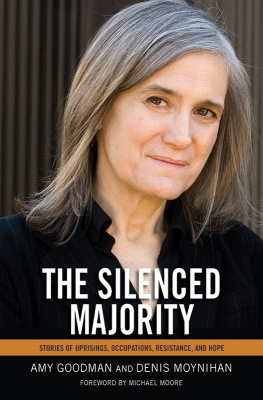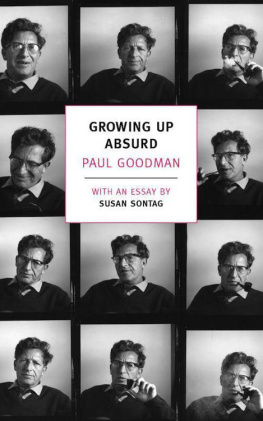Social Work Reclaimed
Innovative Frameworks for Child and Family Social Work Practice
Edited by Steve Goodman and Isabelle Trowler
Foreword by Eileen Munro
Jessica Kingsley Publishers
London and Philadelphia
First published in 2012
by Jessica Kingsley Publishers
116 Pentonville Road
London N1 9JB, UK
and
400 Market Street, Suite 400
Philadelphia, PA 19106, USA
www.jkp.com
Copyright Jessica Kingsley Publishers 2012
All rights reserved. No part of this publication may be reproduced in any material form (including photocopying or storing it in any medium by electronic means and whether or not transiently or incidentally to some other use of this publication) without the written permission of the copyright owner except in accordance with the provisions of the Copyright, Designs and Patents Act 1988 or under the terms of a licence issued by the Copyright Licensing Agency Ltd, Saffron House, 610 Kirby Street, London EC1N 8TS. Applications for the copyright owners written permission to reproduce any part of this publication should be addressed to the publisher.
Warning: The doing of an unauthorised act in relation to a copyright work may result in both a civil claim for damages and criminal prosecution.
Library of Congress Cataloging in Publication Data
A CIP catalog record for this book is available from the Library of Congress
British Library Cataloguing in Publication Data
A CIP catalogue record for this book is available from the British Library
ISBN 978 1 84905 202 3
eISBN 978 0 85700 461 1
Converted to eBook by EasyEPUB
In memory of Debra Philip forever present October 11th 1953 to September 9th 2010
Foreword
This book offers an exciting and persuasive account of how children and their families can receive better help from social workers. It relates how two social workers became so shocked by the poor quality of the social work they saw that they became determined to work out how to run a service that could offer effective help to children, young people and their families.
As I analysed in my review of child protection for the Coalition Government (Munro 2011), previous efforts to reform social work with children and families, though individually intelligent, had combined to create an unbalanced system where compliance with performance indicators and procedures had slowly eroded the space for professional, creative work. Bureaucratic demands and rigid timescales were hindering social workers from engaging constructively and flexibly with families. Persistent media criticism had demoralised many and encouraged defensive practice.
In the comedy Yes Minister, the senior civil servant tells the Minister he is being courageous when he means he is being reckless and doomed to failure. Steve Goodman and Isabelle Trowler looked courageous to many when they decided to challenge the trend and reclaim social work as a skilled helping profession. The chapters in this book illustrate how well they have succeeded.
Written by those working in different parts of the service, they provide fascinating accounts of working with families. In each, there is a vivid tale about practice, showing the emotional impact of the work and the depth of thinking needed to help families shift their patterns of behaviour. Media coverage of social work is almost exclusively critical. The public have only heard stories where social workers are deemed to have got it wrong, often because they are, allegedly, stupid, lazy or callous. These chapters offer a wonderful contrast, depicting the motivation and enthusiasm of the workers and the challenging nature of the work, demanding high levels of intellectual and emotional intelligence.
I joined the social work profession in the 1970s when it seemed a profession with an exciting future. It has been sad to see over the decades how its reputation has faltered and its workforce has lost morale. Now, the tide is turning. The Reclaiming Social Work model was successful in the old system but, it is hoped, it will be easier for others to follow suit now that radical reforms are being implemented in England. The Social Work Taskforce (2009) report and my review of child protection (Munro 2011) have helped to refocus attention on developing professional expertise to help families. Revisions to social work training, reductions in the degree of centralised prescription, and changes to the criteria and methods of inspection should help social work agencies to make the journey from a compliant to a learning organisation where the experiences and outcomes of children are the key feedback data that shape the work. This book shows one successful way of reforming social work to produce not just a happier workforce but, more importantly, happier children, young people and families.
Eileen Munro
Professor of Social Policy
London School of Economics and Political Science
References
Munro E. (2011) The Munro Review of Child Protection: Final Report. A Child-centred System. London: Department for Education. Available at www.education.gov.uk/publications/eOrderingDownload/Munro-Review.pdf, accessed on 20 September 2011.
Social Work Taskforce (2009) Building a Safe, Confident Future: The Final Report of the Social Work Task Force. London: DCSF.
Chapter 1
Introduction
Isabelle Trowler and Steve Goodman
From design to delivery, the last six years has seen the development of a completely different operational system for child and family statutory social work on the front line. Reclaiming Social Work is a well-known model across the UK and has also earned an international reputation. In 2010 the Human Reliability Associates and London School of Economics and Political Science (LSE) evaluation (Cross, Hubbard and Munro 2010) found that the model had produced an organisational culture of reflective learning and skill development, openness and support and most importantly, the re-establishment of a family focus within statutory social work. It also found significant evidence of better decision-making, improved interaction with families and professionals, better consistency and continuity of care, a reduction of constraints on practice and a significant reduction in the burden of administration on practice. Definitive positive outcomes included a reduction in overall costs, a significant reduction in the number of children coming into public care (40 per cent), a 50 per cent reduction in staff sickness levels and a reduction in the use of agency staff, from 50 to 7 per cent.
In the Coalition Governments Munro Review of Child Protection: Final Report. A Child-centred System, published in 2011 (Munro 2011), the Reclaiming Social Work model was heralded as a best practice design.
This book sets out the story of Reclaiming Social Work, and describes the detail of the operational system. Chapter 2 offers a detailed look at how systems theory has been applied to the design, implementation and review of the model. Chapters 3 and 4 discuss, respectively, the application of systemic family therapy and social learning theory (SLT) to child and family social work. Chapters 5 through to 10 offer a series of personal accounts of working as consultant social workers with case responsibility for families, with case examples of the model in practice. Chapter 11 offers the perspective of a childrens practitioner who arrived in Hackney when the model was just starting to be implemented and who still practises there today. Finally, Chapter 12 offers the personal perspective of the co-creators of the model, and describes the moment of conception of the model and through the change journey.












